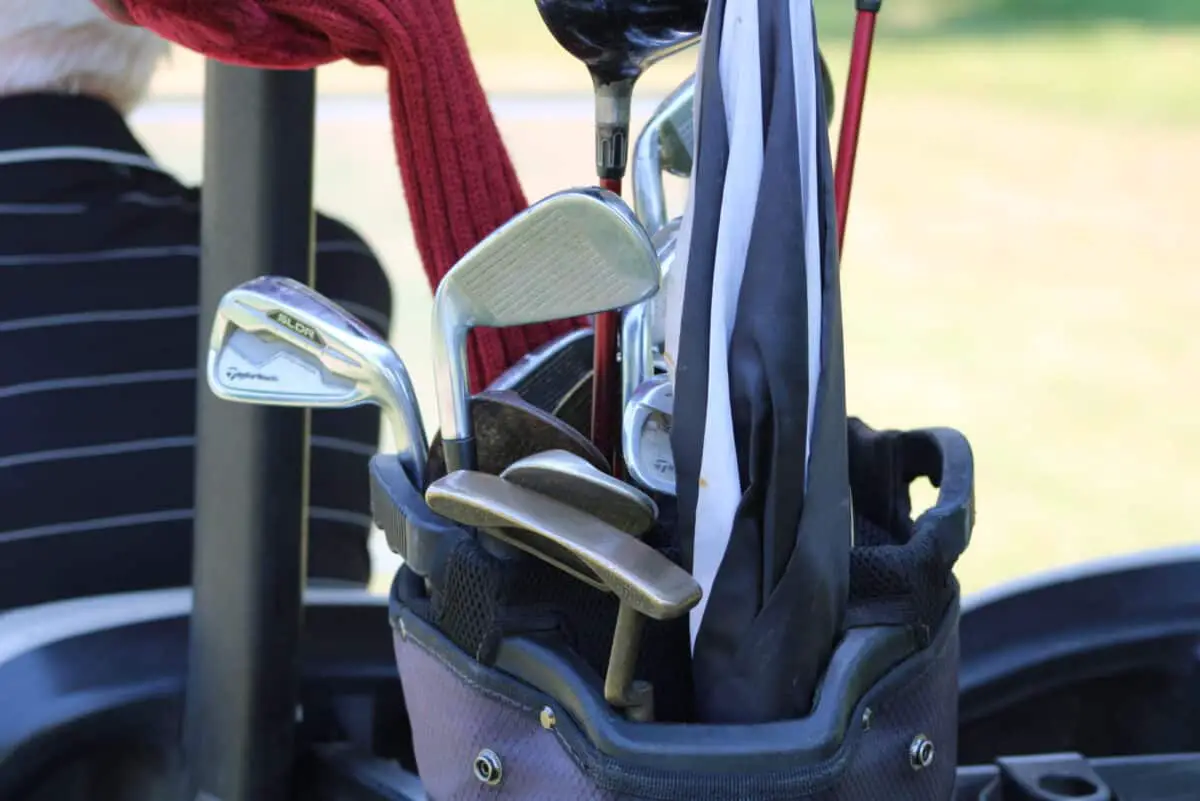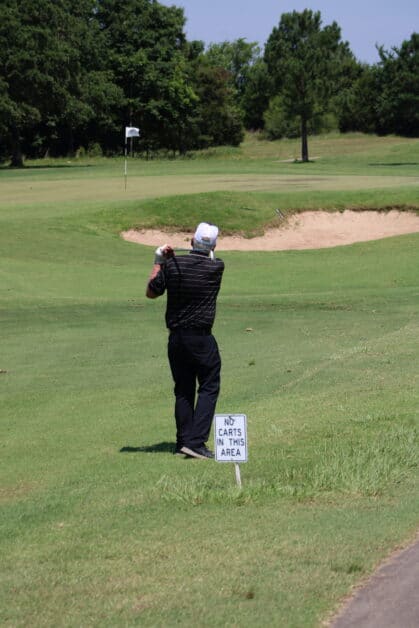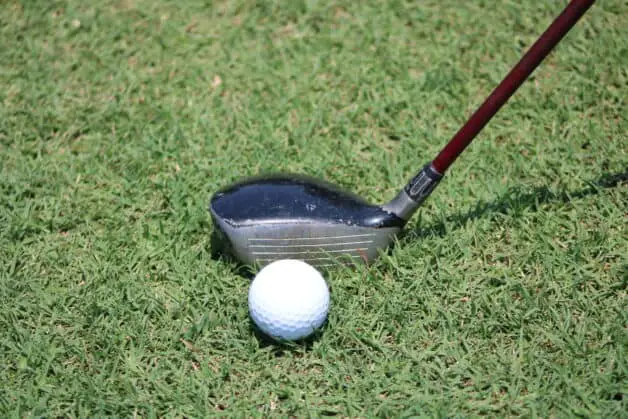Going to the driving range and hitting range golf balls is vastly different from hitting balls on the golf course and mostly because the range ball itself is made differently compared to your regular golf balls.
Are driving range balls bad for your clubs?
No, range balls should not damage your clubs as they are designed to be hit thousands of times, and they are tested at swing speeds greater than most players can muster. However, range balls don’t have the same compression as regular balls. Because of this, they can impact your game in other ways.
Range balls are made differently from regular golf balls. As such, there are certain areas of your game where a significant difference in performance will be observed, and provided you are aware of them, using range balls for their intended purpose is fine.
Range Balls COULD Potentially Damage Woods And Drivers
Hitting range balls with irons will not affect the irons, but you should be aware that because range balls have lower compression due to their construction, there could be a case made for potential damage to fairway woods and drivers.
This is very, very unlikely, especially with the modern clubface designs. Still, the lower compression rate of the range balls means your clubface has to work that much harder to deliver force and spin, and this could result in minor damage.
Range Balls Are Made Differently To Regular Golf Balls
Some players may think that range balls are the same as normal golf balls, but this is not the case as each has a different intended purpose. Designed to take plenty of abuse over their lifetime, manufacturers use different materials to build them.
Aside from their usage, range balls often get damaged during the collection process as the tractor that picks them up can sometimes damage the casings on the ball and be washed a lot more than your regular balls would be.
A range ball is usually a two-piece ball with a cheaper rubber core than a regular ball, more paint on it, and a thicker outside cover. A regular golf ball may have two to five pieces and thinner covers to assist with spin.
None of these factors can damage your clubs in any way, and they could maybe leave some paint residue if you get new range balls in your session. The range ball has to have a mix of acceptable performance and durability as they have to last a whole season or more compared to your regular balls that only have to last a few rounds at best.
Range Balls Perform Differently To Regular Balls
From the outset, range balls feel harder off the clubface due to their much thicker outer layers, and while this is not important on the range, the feel of the ball on the course matters a lot more, especially with the short game.
Which some players can find as a barrier when they are pondering why it’s so hard to improve at golf. When their shots on the range perform different than on the course.
Range Ball VS Regular Two-Piece Ball For Distance
Let’s start with the two-piece range ball vs. a regular two-piece golf ball. Aside from the feel of the ball off the clubface, the distance between these two is about 10% more for the regular golf ball.
This is important to remember as if you are calibrating your irons or clubs using range balls, especially if they are older balls, the difference in the consistent distance could vary as much as 15% compared to regular balls.
So if you are hitting range balls with a 7-iron at 150 yards, you may find that your regular ball is more likely to be at 160-165 yards with the same club.
Not only that, but range balls tend to be more inconsistent in their distance than regular balls, and again this is due to the level of punishment they take that affects their performance.
Range Balls Have More Spin & Less Launch
While having more spin may sound like a good idea, having too much spin on the golf ball can adversely affect your shots, especially distance, flight, and accuracy. More spin and lower launch on the ball means the ball flight will have more of a ‘balloon’ effect, affecting accuracy.
Range Balls Don’t Provide Proper Shot Feedback
One of the reasons for going to a driving range is to hit many balls and determine feedback on your swing, accuracy, distance, shape, and flight of your shots.
If you are working on the swing aspect and not too worried about the ball flight results, knowing that range balls can’t deliver consistent performance, then using the range balls is fine.
You should be aware that when the ball performs poorly, it may not result from poor technique but rather from the ball itself. To this end, you should never try and calibrate club-lengths using range balls or use range balls when getting fitted.
This is because the inconsistency in ball performance would provide false feedback. This is not productive or constructive for assessing club performance, whether fitting or testing out club options.
While range balls can indicate how the clubface would feel when hitting the ball, the true performance of the club can only be measured accurately using decent quality balls, similar to what you would use on the course.
Another point here is that if you are looking to shape your shots, then range balls would not be advisable as you will struggle to achieve shape consistency and find yourself adjusting swing elements that don’t need it because the ball performance is inconsistent.
What Balls Do Professional Golfers Use On The Range
Pro golfers have the luxury of having their golf balls sponsored, and even if they aren’t the same as their playing golf balls, their range balls are premium quality and more akin to their actual playing balls.
This is, of course, because they need to have a proper shot from distance, shape, flight, spin, and feel so they can adjust micro-elements of their swing technique to achieve the level of control they require.
While most average golfers could not afford to use regular balls on the range, you should be using your regular balls for chipping and putting, as this will give you a consistent feel and touch when practicing.
Are Driving Range Balls Bad For Your Clubs Conclusion
As a golfer it is wise to bear in mind that the range balls cannot deliver consistent performance as regular balls; this will affect your accuracy and distance. So don’t be too hasty to blame yourself for some of those errant shots, as it may not be your fault at all!
Range balls are not bad for your clubs as the chances of damaging any of them are virtually nil, so you don’t have to worry about this when going to your local range to practice and while they may not be bad for you clubs, they may not be great for your game!
- Should Tee Boxes Be Level? - January 23, 2024
- 3 Hybrid Distance - November 15, 2023
- Innovations in Golf Mobility: An In-depth Review of Top Golf Scooters - October 12, 2023


